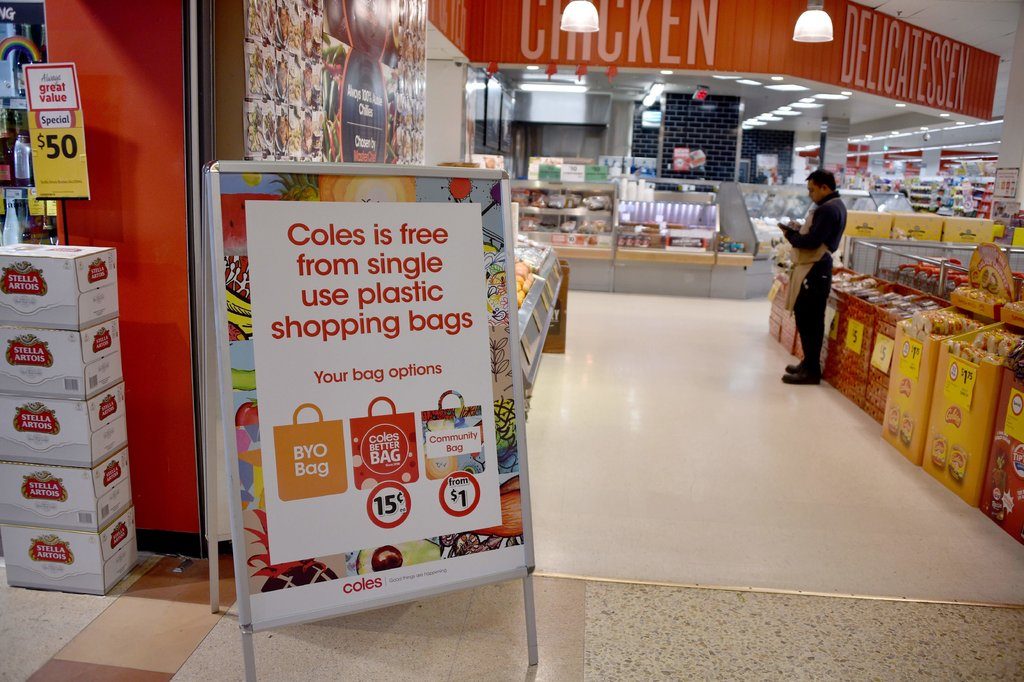Coles, a major Australian supermarket chain, on Wednesday reversed its decision to ban single-use plastic bags after its customers complained, a move that bucked a global trend to reduce plastic bag waste and prompted a social media backlash against the company.
Both Woolworths and Coles, which collectively hold a 61 percent share of the Australian grocery market, had agreed to introduce reusable plastic bags by July 1 this year to coincide with state-led bans on single-use bags.
The reusable bags, which cost customers 15 Australian cents (11 U.S. cents), are more durable and were meant to give people an alternative to single-use plastic bags. But many customers complained about having to pony up the money, prompting what some have called “bag rage.”
The chain’s reversal drew derisive tweets from Australians and others who accused it of lacking backbone and hinted at adverse environmental implications of the decision.
More than 40 countries have banned or restricted the use of plastic bags with, in most cases, exceptions for hospitals and pharmaceutical products and other industries where the use of plastic may be necessary.
Zoë Deans of Greenpeace Australia Pacific assailed the Coles decision.
“This decision makes a complete mockery of Coles’s claim to want to reduce plastic waste and is a betrayal of the millions of their customers who want the supermarket to do the right thing in favor of a vocal minority,” Ms. Deans said in a statement.
Millions of tons of plastic waste ends up in the sea each year, where, because of currents, it often becomes concentrated in subtropical gyres or “ocean garbage patches.” This pollution is often ingested by marine life and can find its way into the human food chain.
Efforts are underway to clean up these garbage patches, by organizations like The Ocean Group — a nonprofit involving engineers, researchers, scientists and modelers — who aim to reduce the Great Pacific Garbage Patch by half in five years.
Some countries have taken stern action to curtail the use of plastic bags. In Rwanda, it is illegal to import, produce, use or sell plastic bags and packaging equipment. People who smuggle plastic bags into the country may be fined or face prison time, while executives of businesses that produce plastic bags may spend up to a year in jail.
Single-use plastic bags are now banned in all states and territories in Australia except Victoria and New South Wales. Victoria plans to ban them formally by the end of 2019, but New South Wales’s government has yet to act on the issue.
Source: New York Times

 Tiếng Việt
Tiếng Việt
